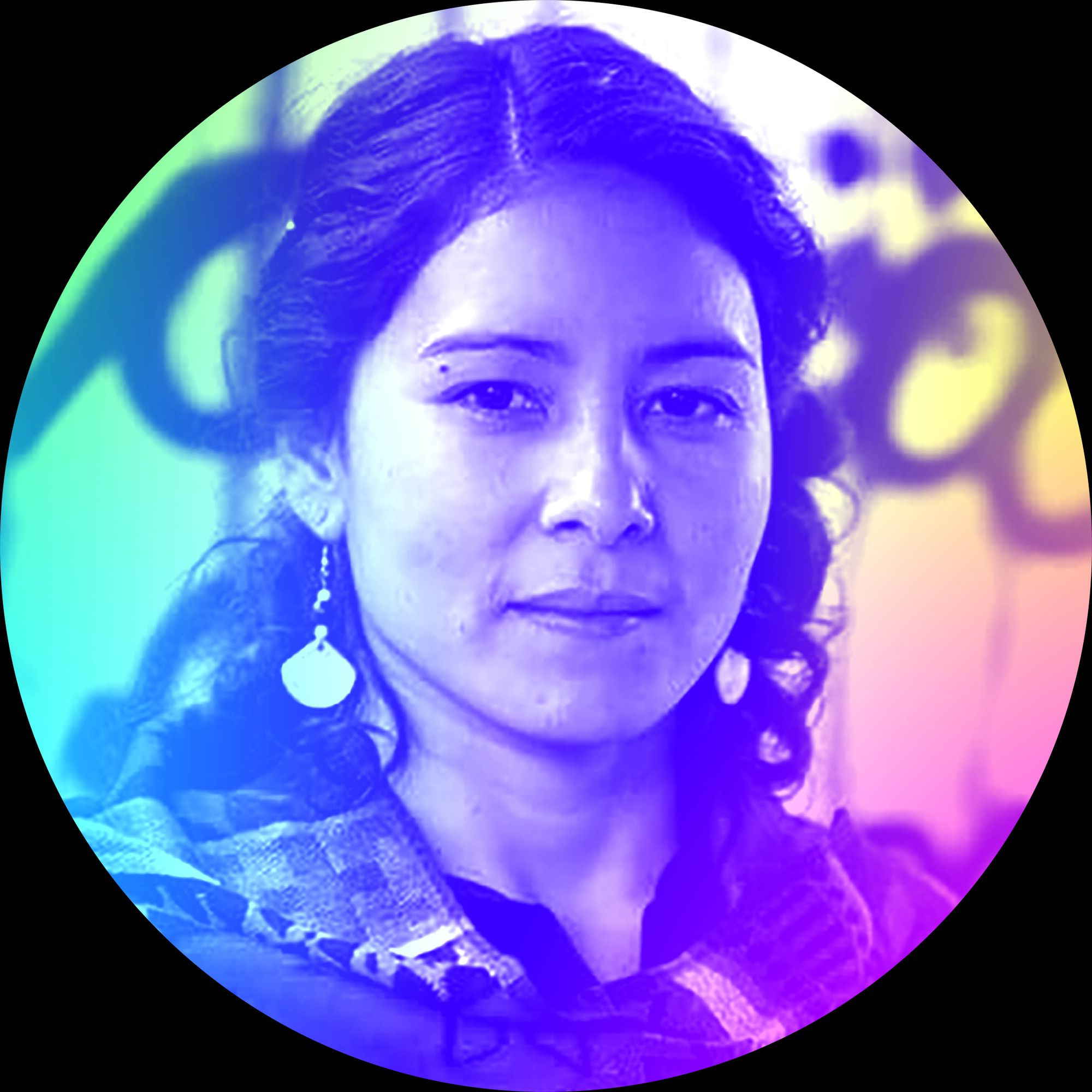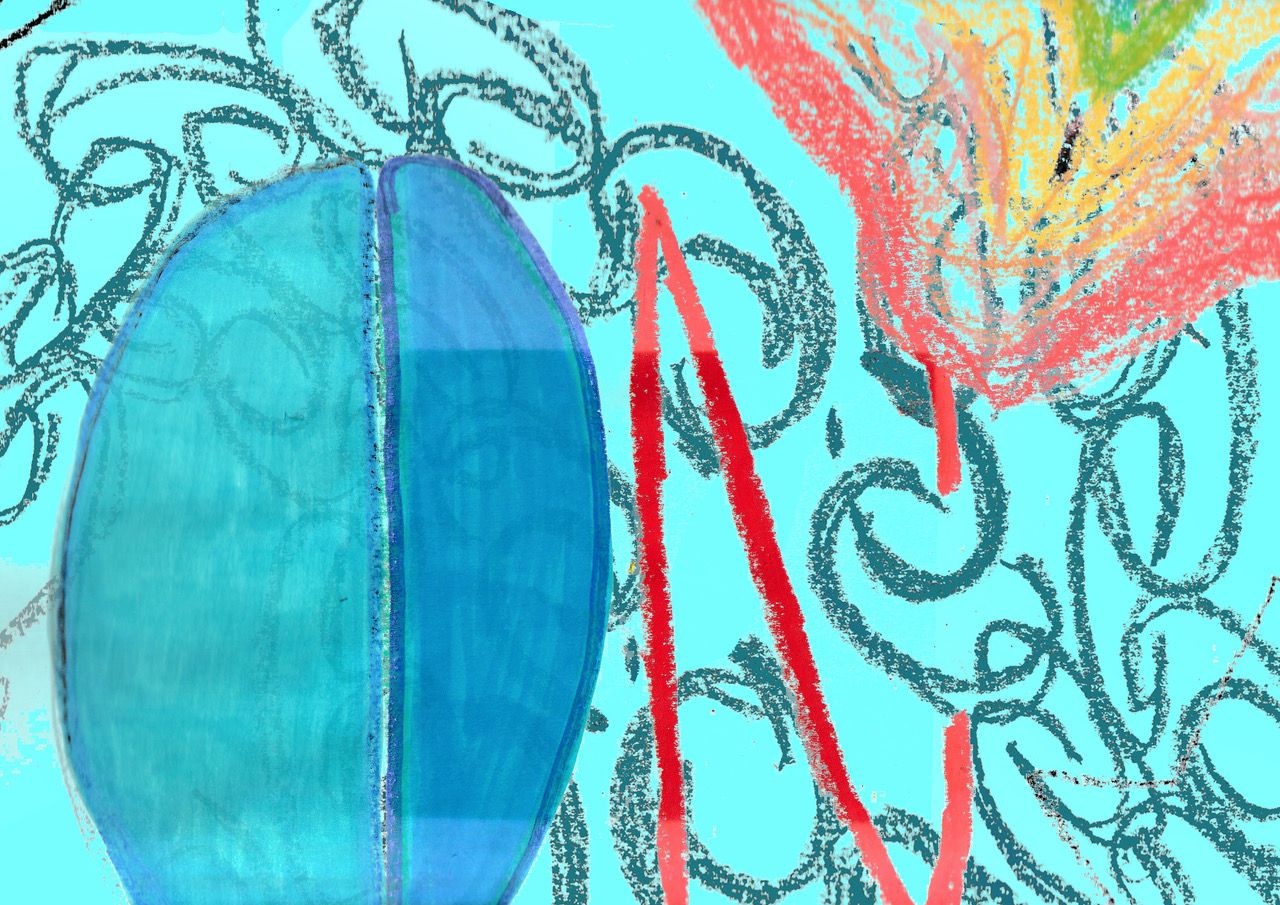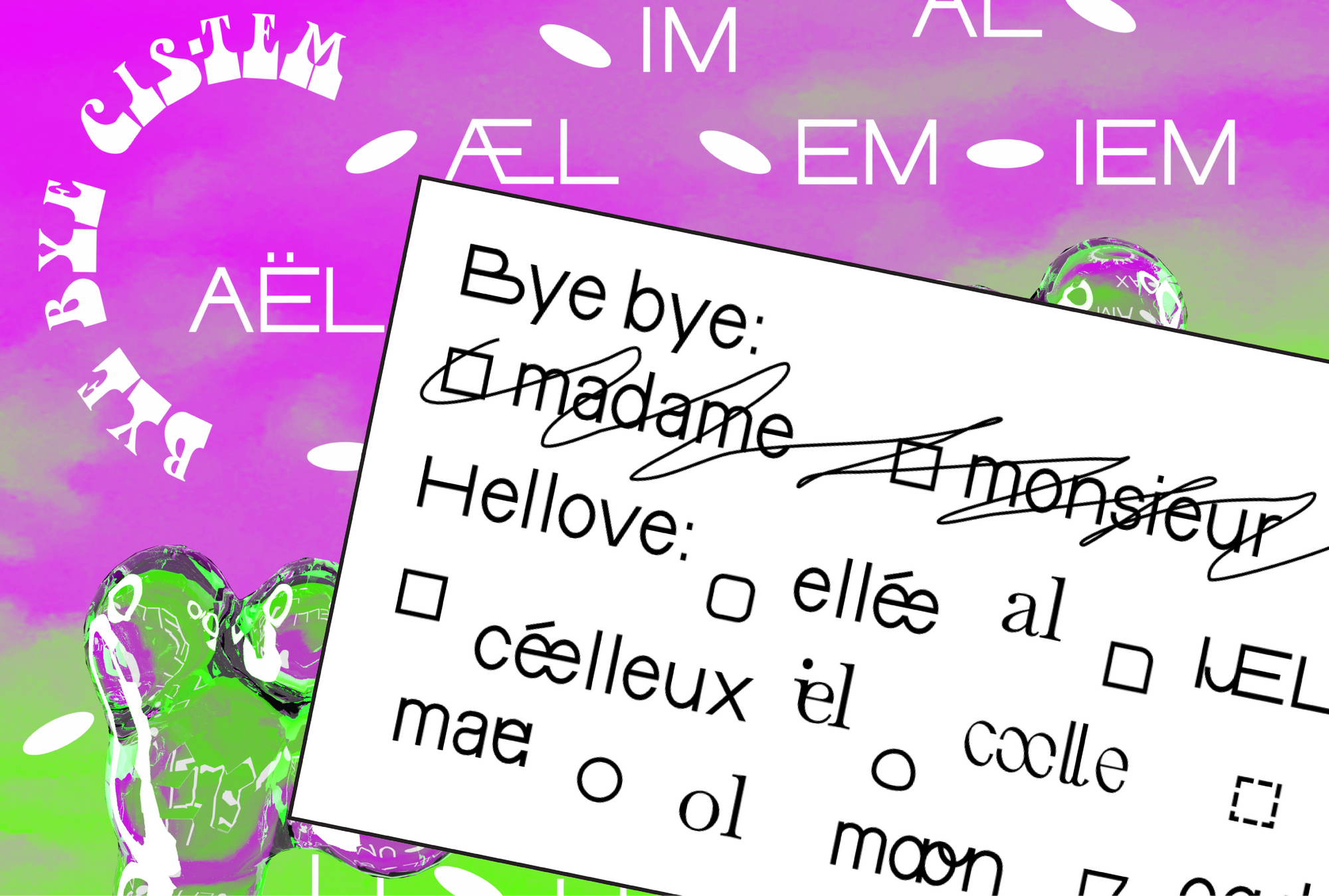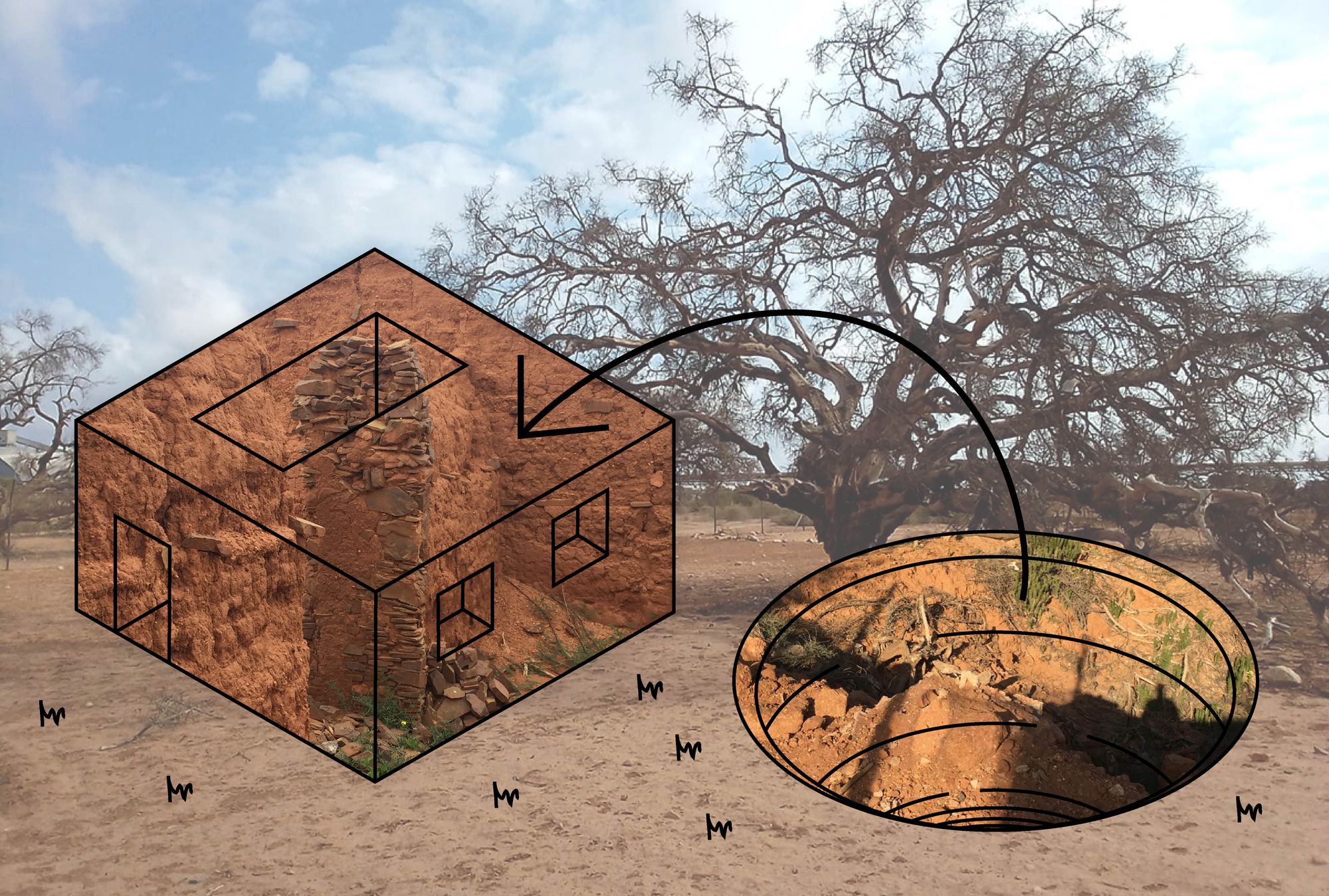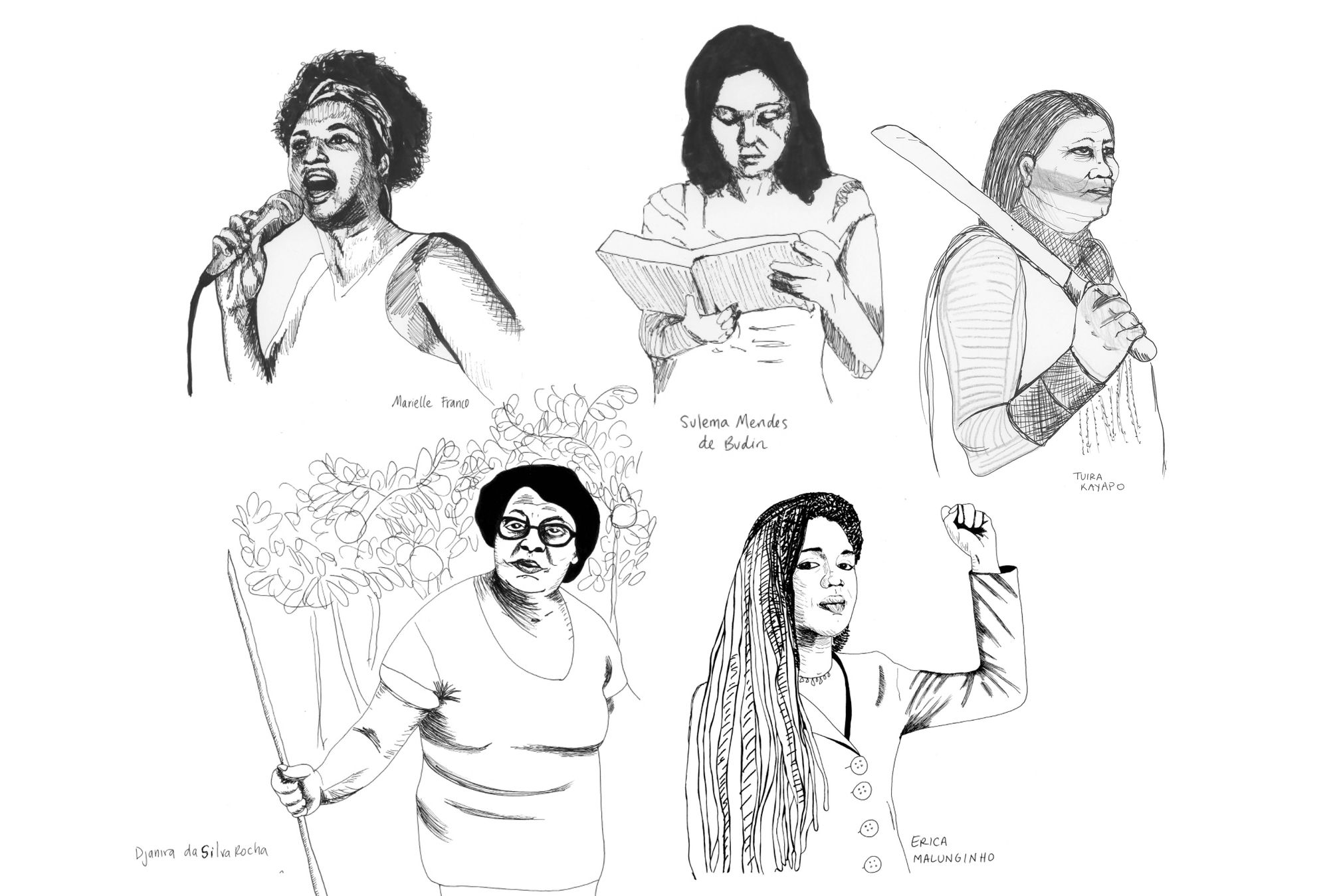
Jerá Guarani is a prominent Guarani Mbya leader, one of the many indigenous peoples that populate the territory that—after centuries of resistance—is now known as Brazil. Her people live in Tenondé Porã Indigenous Land, an area of approximately 16 hectares in the South of São Paulo, one of the largest urban centers in the world. Jerá’s activism and educational militancy have been pivotal in reclaiming Guarani’s ancestral territories and fighting for the maintenance of the nhandereko (their traditional modes of existence) in her village, especially through the strengthening of the autonomy and food security of the Guarani Mbya people. The efforts of the Guarani people have often been met with violence and hostility, especially since Brazil’s current president Jair Bolsonaro came into power in 2018. His far right government has systematically attacked indigenous peoples, their traditions and territories, proclaiming they should look forward to being included in the mechanisms of “progress.” In the following text, originally published in Piseagrama in 2020, Jerá Guarani reflects on the alarming conditions of planet Earth, brought about by the so-called “civilized” people.
What I’m about to say won’t sound very nice. This is rare for me, as we, the Guarani Mbya people, are very cheerful—we love to laugh. I always strive to be authentic—happy, despite the sorrows—even when I talk about negative and challenging matters.
But, at this moment in history, in the face of the fear of the elders and the sorrows of our people in the village, for being an indigenous Guarani Mbya woman and for having learned everything I learned, when I think of planet Earth now—not only of it, but of us in it—I would really like to believe in past lives. Sometimes I wish that I had lived in another era, so I wouldn’t have to see and feel so many incomprehensible things. I might as well have lived in the age of dinosaurs, and been devoured by one. I think that would be a much better situation than the one we have today.
“All the bad things that are happening on planet Earth come from civilized people; people who are not, in theory, ‘savages’.”
One of the things I must say to our elders and to you, Juruá [the white people], whenever we meet, is that doing anthropology of your culture is crucial. Imagine if we were to bring the Guarani people from their communities into your houses to observe you on a daily basis. To feel, to reflect, to try to understand, to write reports, and finally to produce a beautiful hardcover thesis with many pages, photographs, graphs, and references to other studies; then, to conclude and tell the Juruá to become savage, to become “uncivilized”—because all the bad things that are happening on planet Earth come from civilized people; people who are not, in theory, “savages.”
If we did an anthropological study about your culture, we would then have the adequate qualifications and greater legitimacy to convince many people to become savage—not so intellectual, not so important. You would then face the everyday risk of being killed, of watching everything you love burn to the ground: your homes, your families, your children. But overall, at the end of it, you would be better people.
Don’t be scared: I have very dear Juruá friends, and we have many Juruá partners who fight along with the Guarani people. Many have already died, and others will die too. Becoming savage is not something that can happen overnight. It is something that would require great dedication and hard work from you, non-indigenous people.

In spite of several studies and evidence produced by the civilized world, people continue to do the wrong things. It’s easy to notice when bad things happen and realize that we are not doing well. I know a bit about São Paulo through the studies made by the Juruá themselves, and through the stories of the elders of my community. I know that there used to be bodies of water here, but the Juruá came and capped them with concrete. They redirected beautiful rivers—that would otherwise still be here today—to provide water for the Juruá to drink, to bathe, to swim. The Juruá covered everything with concrete and destroyed it—now, the bodies of water are gone. And I get the impression that it’s only going to get worse.
It is revolting that the Juruá society gets to be perplexed and outraged about “indigenous people in Brazil commiting infanticide,” or about “Caciques [warrior-chiefs] having two or three wives,” and other things along those lines. Meanwhile, the Juruá do incomprehensible and evil things against sentient beings that cannot defend themselves, such as smuggling ivory from an animal that is so beautiful, so giant. Elephants are often left on the ground in agony, bleeding to death, only for a part of their bodies to be taken away for this insane world of consumption, for the accumulation of wealth. Had I studied anthropology, would I be able to explain to my people why the Juruá do this? Still, we cannot give up hope. We have to fight—just like we have been fighting for more than 500 years.
“The Juruá [the white people] do incomprehensible and evil things against sentient beings that cannot defend themselves [...] Had I studied anthropology, would I be able to explain to my people why the Juruá do this?”
I was born almost 40 years ago in a 26-hectare village where I spent my entire childhood eating Juruá people’s corn that was laced with pesticides—because there was no Guarani corn left. We learned to eat Juruá food around the same time electric power and other things made their way into our community.
When the Juruá arrived, they were immediately confronted with a lack of what they considered to be convenient, correct, and comfortable architecture. There were no brick houses or any of the buildings typically found in their cities—no cars, no machines, no escalators. Our people lived in wattle and cob houses and cooked on the floor with firewood, among a crowd of barefooted children, covered in soil. And so, we were immediately considered to be pitiful people in need of help. “They suffer a lot, they are filthy!”
They started bringing food to the village. Naturally, our people got curious, started trying the Juruá food, and became delighted with its practicality. We were so fascinated by it that we did not grow, nor did we eat, our traditional Guarani food for over 70 years—until recently.
We were over 170 families, and we had taken up all the space; there was no place left to grow our traditional foods. Over time, and with so many people living in such a small village with great access to the city and to the things of the Juruá, our Guarani things gradually disappeared. I myself only got to know the Guarani varieties of corn in my thirties! They are beautiful, colored corns, delicious to eat. But before then, I simply didn’t know them.
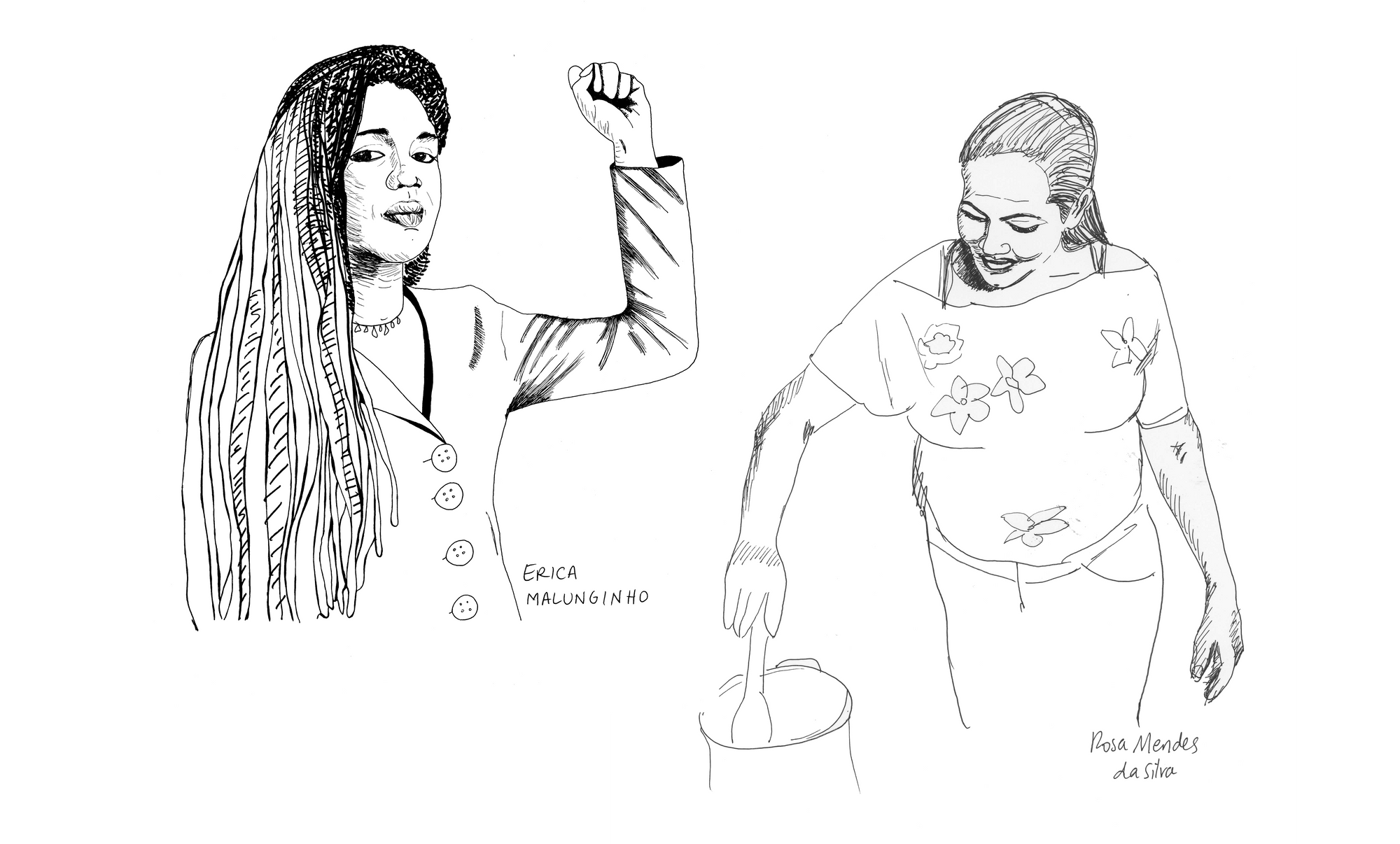
Since 2008, I have been working together with friends and partners on projects for the enhancement of the Guarani culture. Through public grants and funding, we have the support of the Municipal Department of Culture, and the Department of Culture of the State of São Paulo. One of these projects was about the issue of Guarani food: what is our authentic food, our sacred food? Do we still have that kind of food? And if not, what happened to it? Why did it disappear? How can we bring it back?
Along with this quest for our traditional food, we were fighting for the demarcation of the Tenondé Porã Indigenous Land. It all came together: we were simultaneously strengthening the women’s leadership movement, barricading the streets of São Paulo, and trying to rescue our food. Until then, we had been eating genetically modified food—dead food, which brought diseases to our community that we didn’t have before. In the past, there were no records of people with cancer, for example.
“It all came together: we were simultaneously strengthening the women’s leadership movement, barricading the streets of São Paulo, and trying to rescue our food.”
Then, indigenous villages began to appear as the result of processes of reclaiming territories. In 2013, we reclaimed ownership of the Kalipety village. Despite it being already recognized as an Indigenous Land by Funai (the National Indian Foundation), we had to fight for the declaratory ordinance to be given by the Federal Ministry of Justice. This should be followed by the physical demarcation of the land—something we have not yet achieved. But even before the declaratory decree was issued, in order to give meaning to our cultural efforts and further encourage our struggle for land, we entered the Kalipety village and immediately began planting.
We happily planted every seed we had managed to collect from other indigenous communities and at seed exchange fairs. We went from a piece of land where we had almost no room to plant, to an area with lots of space, all within the municipality of São Paulo. This was a land that had previously been exploited for eucalyptus plantations, and was therefore significantly degraded. So we started to take care of the land and treat it with organic fertilizers; we were looking forward to bringing back the land and eating our traditional foods.
That work was supported by the Funai office in the municipality of Itanhaém, by the Indigenist Work Center (CTI), a partner for over 30 years, and by the Municipal Department of Culture of São Paulo. The latter subsidized several trips to seed exchange fairs, assemblies, and workshops—all focused on the wisdom of Guarani farming. In six years, we managed to recover more than 50 varieties of sweet potato and more than nine varieties of corn. Now, we also plant peanuts, green bananas, cassava, and several plants the Juruá call “PANCs” (non-conventional food plants).
We send sweet potato varieties to many places—to other Guarani villages and to non-organic farmers, because the more they are planted, the less we risk losing them again. And we didn’t need to deforest huge areas, to set fire to the woods, or to kill animals in a cowardly manner. By taking one small step at a time, anything can be done.
“Traditional Guarani food nourishes both the body and the spirit. This means that people become strong enough to keep fighting. To defend nature, our Guarani way of being, we have to be physically and spiritually strong.”
If we work on Guarani food autonomy and sovereignty, we will keep our people strong; that is our aim. The genetically modified food that comes from the city doesn’t actually make people strong. Traditional Guarani food nourishes both the body and the spirit. This means that people become strong enough to keep fighting. To defend nature, our Guarani way of being, we have to be physically and spiritually strong.
As we understand it, every tree has an owner; every stone has an owner; even the water has an owner. Nhanderu, our powerful God, created everything, and each thing has its own Ijá, its guardian. The Ijá take care of the natural resources. When you misuse resources—when you destroy too much—the guardians get angry and take the resources away from you. Our elders say: “We protect our children from danger. The Ijá are just like fathers and mothers who protect their children from human beings who mistreat them.”
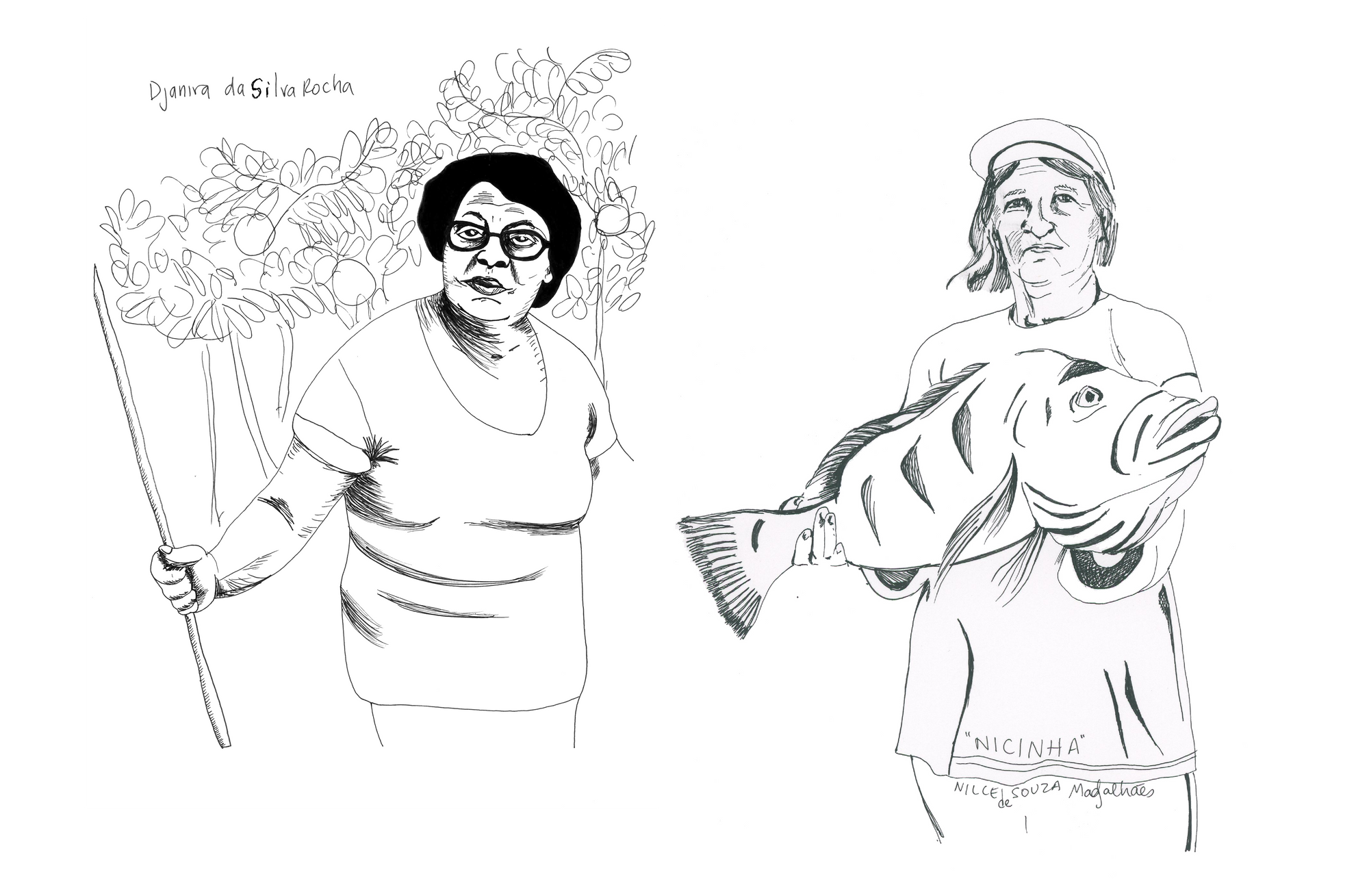
When I was nine years old, I joined your culture in order to study it. In the beginning, it was very painful. I went to a state school near my village, and I couldn’t speak a word of Portuguese. My parents had come into contact with the Juruá people, and my mother even spoke some Portuguese. They understood that I needed to learn the language of the Other in order to better defend our community.
My mom enrolled my sister and me in the first grade. My sister gave up in her second year. I went through many hardships and tried to drop out of school three times, but I had a teacher who was very significant in my life. She came to the village looking for me, and took me back to school. She was a crucial part of my contact with the Juruá world.
After first grade, I started to enjoy the education I was getting. Even though it was different from that of my community, I found there were good aspects to it. Later, I enrolled in a Pedagogy course—although I only finished it to reinforce my own argument to the community that we could also learn the culture of the Juruá. The Juruá culture has good and beautiful things too, some of which are very sophisticated, like the knowledge of medicine to cut into a body, take out the heart, mend it, and put it back in—that’s very advanced, indeed!
“We must remember the teachings of generosity: if nature gives us water, if it provides us with medicines, if it gives us food—then the least we can do, regardless of what we believe, is respect it.”
However, in the community, I support the belief that our culture is also important; that it is not inferior to any other culture, and that we must continue to value it. When I argue for the defense of our culture and, above all, for the defense of nature, I try to explain that being charmed by the Juruá culture might present the risk of losing ours. If we don’t respect the rules that have been set for us since we were born, good things will not come to us. We must remember the teachings of generosity: if nature gives us water, if it provides us with medicines, if it gives us food—then the least we can do, regardless of what we believe, is respect it.
We don’t believe that the world will end tomorrow, or the day after. Our elders don’t believe that either, but they say that from now on, things will get a lot more complicated. I’m not referring to the last presidential elections in Brazil, or to Covid-19. In fact, the elders have been saying this for some time, as they are aware that there are Juruá people in the city who are starving and homeless. There are children and elderly people on the streets. In a land that produces so much food, there is hunger.

Life in my village began to make more sense to me as I began to closely observe life in the city: the rush, the fact that people didn’t share what they had with one another, the fact that everything was very individualistic, that the Juruá didn’t know each other on the street. They bumped into each other and didn’t say “good afternoon” or “good morning.” Nobody cared about anybody. There were people sleeping on the streets, and nobody cared about it. Then, when I went back to my village, everything was different. All those things that struck me as heavy and wrong didn’t exist there. Inevitably, I began to compare: in the community, for instance, the elderly are highly respected. They are sacred to everyone, whereas in the city it is simply not like that.
Even though I held a stable position as a teacher of the community, one upon which I could easily retire, I decided to stop. It was from that moment on that I was able to strengthen my own discourse, and to live up to the things I said when I was still a teacher. Back then, I shared my wage with the community; it was never just for myself. But still, I would be seen as a civil servant, a person who owned things and would have access to things that most people wouldn’t. Things are different now, and I am able to show that I can live just like my mom and dad used to, like my grandparents did, without a wage from the State.
In my early years as a teacher, I made several mistakes—both as a teacher and as a Guarani who came into this world without fully understanding what it meant. Afterward and for many years, I did a lot of good things together with my peers. Above all, we reflected on what is being taught to us, the purpose of education, what we look for, and what kind of students we want to foster. Even though we still have a long way to go, there are now teachers in the Tenondé Porã village who are well aware of these issues, and do an excellent job.
“We can study the culture of the Other, without losing or failing to value our own.”
I quit teaching in order to dedicate myself to community politics—to be a leader, as well as to work and to show people that we can pursue a Juruá education, learn a lot from it, and then live within and reinforce our own culture. I wanted to show my people that we can learn the culture of the Other, both to better understand them, and to be more able to defend ourselves. I wanted to show my community that we can study the culture of the Other, without losing or failing to value our own.
Another issue that weighed heavily on me is that the schooling system worldwide, and as a whole, is broken, especially in Brazil. The curriculum that is set in place for students is absolutely shameful. And, if the education of the Juruá people is arguably broken, you can imagine what education is like for the Guarani people. Throughout the state of São Paulo, state and municipal schools were built within Guarani communities without any kind of preparatory measures, specific arrangements or assessment of their potential consequences. As the communities were not prepared, naturally, there was no political-pedagogical planning.
We have schools today that have been in indigenous communities for over 20 years, and still do not have their own political-pedagogical projects. That means that a considerable part of the pedagogical functioning in such schools is focused on foreign concerns—they do not offer differentiated education for indigenous peoples. To make matters worse, people in the communities associate a formal education with a good future. As a result, children and young people often fail to learn their traditional culture precisely because they attend school. If the school will guarantee us a future, they ask, then why learn to do other things? That line of thinking represents a great risk. We cannot afford to think of schools like that. When a student finishes high school, they will not have a guaranteed job in the community.
We don’t need to adhere to the insane idea that we must study like crazy to get a job, and work all of our life—only to realize, on our deathbeds, that we haven’t made the most of it. We need to know that when we learn about another culture, that knowledge can be used in different ways. It can be used to strengthen our own culture and to show our young people that it is possible to survive and to live well without a wage within our community. We need to know that we can go into the woods, learn the lessons of nature from our elders, and it will all be fine.
If we have had contact with the Juruá culture for five hundred years, this is a demonstration that, in fact, the Juruá could become “savage.” They could go on living and have a little more respect for planet Earth. There are no words to describe how magnificent our planet is, but I don’t think the Juruá have really understood this yet.
I often venture into the Juruá world a lot, but I try to bring back to the community as little as possible of the things that are not good. I bring some of the good stuff, but they usually work their way in on their own, mainly through television and other technological devices. What I do, then, is mostly sift through what comes in and talk to people about it. I would ask: “How much do you accept this?” or “To what extent do you need to have that as well?” I try to reduce the conflict between what comes in and the traditional Guarani dynamic of having just enough to lead a peaceful and healthy life.
“Perhaps one day the Juruá [the white people] will realize that it is vital to support the indigenous struggle [...] because it is a question of survival for everyone.”
As I also spend time in the city and eat your food, I often try to put myself in your shoes. I think that many of the Juruá want to fight, many Juruá cry too, they are also angry. We just don’t know how to unite, how to join forces, how to join our studies and reflections; to fight hand in hand to protect our immense nature that is essential—not only for Brazil, but for the entire planet.
Perhaps one day the Juruá will realize that it is vital to support the indigenous struggle—not because we are cute, colorful, wear feathers, or have little children with body paint, but because it is a question of survival for everyone. Indigenous peoples can be accused of all sorts of things, however, we are the only ones in Brazil who actually respect nature. Just type on Google “indigenous territories in Brazil,” and you will quickly find that, despite current government claims that we are “tired of watching the stars,” we keep our lands green, even within forests, without having to resort to deforestation or wildfires.
I enjoy inviting more and more people to “become savage.” Our planet, as it is, is suffering a lot. It is crying and screaming, and because we are part of it, we too will start living, seeing, knowing, and facing many negative things. I smoke a pipe, I make a fire on the floor, I cook, I sleep, and I wake up to bird songs—all of this is so simple, but also so beautiful, so great, so important.
Jerá Guarani (she/her) is an educator, and worked as a teacher and director at the Gwyra Pepó Indigenous state school. She is now a Guarani Mbya farmer and leader at the Tenondé Porã Indigenous Land, in the south of the municipality of São Paulo, where she also carries out cultural projects and produces documentaries.
The text is paired with artwork by London-based Colombian artist Carolina Caycedo. In the featured series, titled My feminine lineage of environmental struggle, Caycedo’s portraits show various women environmental activists. As Caycedo explains, the artwork aims to visualize the women who are fighting not only against natural extractivism, but also against a patriarchal structure—the two struggles are inseparable.
Carolina Caycedo (she/her) is a member of the Los Angeles Tenants Union and the Rios Vivos Colombia social movement. She has participated in residencies and exhibitions in Berlin, Boston, Los Angeles, Chicago, and Brazil.
CROSSINGS—TRAVESSIAS is a collaboration with the Brazilian publishing platform Piseagrama. We will be working together to translate into English a series of urgent Afro-Brazilian, indigenous and LGBTQIA+ voices, originally published in Portuguese by Piseagrama. The project aims to function as a transnational meeting point across cultural, geographical, cosmological, and linguistic borders.

